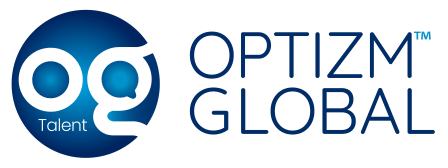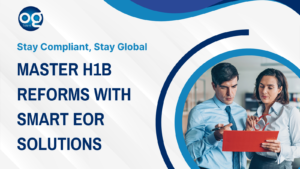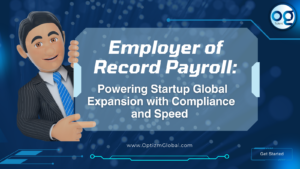Organizations frequently require change and transformation to remain competitive and pertinent. The human resources (HR) units are responsible for steering these organizational modifications and guaranteeing prosperous transformations.
This blog post examines HR’s diverse role in propelling organizational change and transformation, emphasizing essential approaches and exemplary practices.
Strategic Planning and Alignment:
Establishing a connection between company objectives and human capital strategies is crucial for any organization, and this is where the Human Resources (HR) department plays a vital role. The HR team needs to deeply understand the company’s strategic goals before they can identify the skills and competencies necessary to achieve these objectives. Once established, the HR team can design programs aligning with the organization’s overall goals. Senior executives must work closely with HR practitioners to ensure that the HR initiatives complement the company’s long-term vision. By doing so, they can help to ensure that the organization’s change initiatives are aligned with its broader objectives.
Change Management Expertise:
Change management is a well-organized and systematic approach that aims to facilitate the smooth transition of individuals, teams, and organizations from their current state to a desired future state. Human resources professionals are usually responsible for leading change management efforts by devising effective communication strategies, managing resistance to change, and promoting employee engagement. They create and implement change management plans, conduct thorough impact assessments to identify potential challenges and opportunities and provide consistent support to employees as they adapt to new ways of working. Overall, change management is a critical process that helps organizations realize their goals and objectives while ensuring the well-being and satisfaction of their employees.
Talent Management and Development:
Organizational change and transformation are complex processes that require a workforce that is skilled, adaptable, and responsive to new challenges. Human Resources (HR) departments ensure organizations have the talent they need to thrive in today’s rapidly changing business environment. This involves identifying critical talent gaps, developing comprehensive succession plans, and implementing training programs that upskill employees. A continuous learning and development culture is essential for nurturing employee talent and ensuring that they are equipped to embrace change and contribute to the organization’s overall success. HR professionals must stay current with industry trends and best practices to create a supportive and inclusive work environment that fosters employee growth and development.
Communication and Stakeholder Engagement:
In times of change, it is crucial to communicate clearly and transparently. Human resources professionals play a vital role as strategic communicators in conveying the reasoning behind change initiatives, addressing employees’ concerns, and keeping all stakeholders informed throughout the transformation journey. They utilize various communication channels such as town hall meetings, newsletters, and digital platforms to encourage dialogue and collaboration among all parties involved. This way, everyone is on the same page, and the change process can be navigated with greater ease and success.
Organizational Culture and Employee Engagement:
HR plays a significant role in creating a positive work environment that encourages change. This is done by promoting open communication, recognizing employees’ contributions, and making them feel accountable. Employee engagement initiatives, such as feedback mechanisms and recognition programs, are essential during periods of change to keep employees motivated and happy. The organizational culture is critical in shaping how employees perceive and respond to change.
Data Analytics and Insights:
Human Resources (HR) departments increasingly rely on data analytics to gain valuable insights into employee sentiments, organizational dynamics, and the impact of change initiatives. By analyzing data metrics such as employee feedback, performance indicators, and retention rates, HR can make informed and data-driven decisions, identify areas for improvement, and measure the effectiveness of change management strategies. This data-driven approach enables HR to continuously refine and optimize change initiatives, leading to better outcomes for employees and the organization. With the help of cutting-edge analytics tools and techniques, HR professionals are better equipped than ever to understand and respond to the needs of their workforce while simultaneously driving positive change throughout their organizations.
Leadership Development and Support:
Successful organizational change requires effective leadership. In this regard, HR is crucial in identifying high-potential leaders, providing targeted development opportunities, and coaching them on changing leadership skills. Additionally, HR supports senior leadership in championing change, fostering a culture of innovation, and creating a supportive environment where leaders and employees alike can enthusiastically embrace new ideas and initiatives. By doing so, HR helps to ensure that the organization is well-equipped to navigate change while maintaining its competitive edge.
Adaptability and Resilience:
Organizations must be able to respond to new challenges with adaptability and resilience. The Human Resources department promotes adaptability by fostering a culture of agility, flexibility, and a growth mindset among employees. By prioritizing resilience-building strategies, such as stress management techniques and mental health support, HR helps employees navigate the difficulties of change and emerge from transformational experiences stronger and better equipped to face future challenges.
HR plays a vital role in driving organizational change and transformation. HR professionals contribute significantly to the company’s success by aligning human capital strategies. Embracing HR’s role as a strategic partner in change management is essential for companies seeking to thrive and innovate in today’s dynamic marketplace.
In conclusion, HR professionals must develop and implement effective human resource strategies to increase productivity, employee engagement, and overall organizational success.
Read our more blogs: https://optizmglobal.com/blogs/





